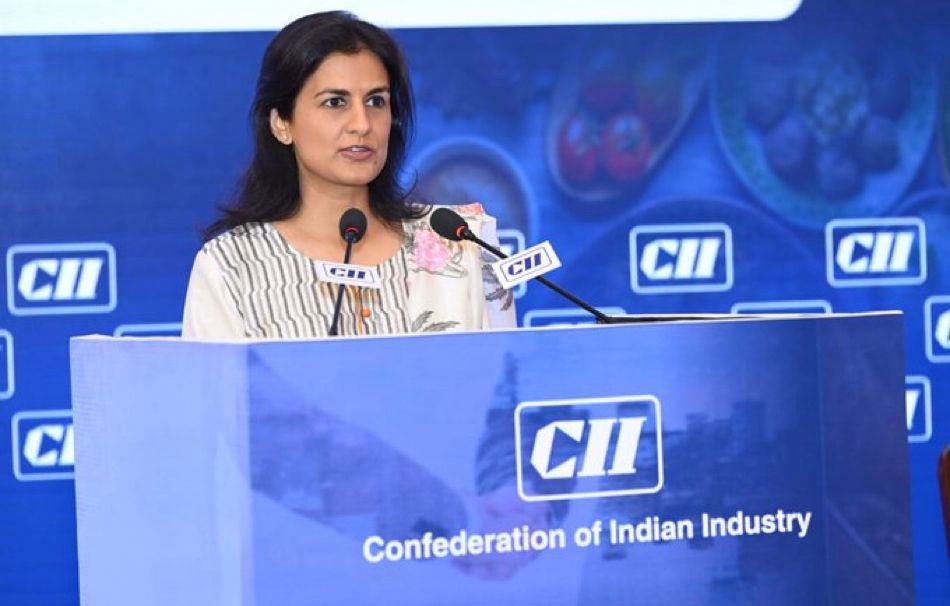Skilling among CII's top priority areas: Swati Salgaocar

FinTech BizNews Service
Mumbai, 15 November, 2024: The CII WR on Conference on Building Workforce for Industry 4.0 was held as part of the week long Mumbai International Week initiative of CII held from 11-15 November in Mumbai. The session focused on the need and importance of skilled workforce and key interventions required to ensure workforce stays relevant.
Ms Swati Salgaocar, Chairperson, CII Western Region 2024-25 & President, V. M. Salgaocar & Brother Pvt Ltd said that CII has always focused on skilling. CII has many initiatives like the Chhindwara Skill Training Center in Madhya Pradesh, the Skill Centre in Mumbai and six Model Career Centres (MCCs) across the region that have been doing a phenomenal work on skilling workforce.
Expressing urgency on the need for reskilling workforce Ms Salgaocar quoted the World Economic Forum, which projects 97 million new jobs will be created by 2025, but 85 million jobs will be displaced.
Mr Bobby Kuriakose, Convener, CII Maharashtra State Skill Development Panel & Director – HR, Forbes Marshall said that to succeed in Industry 4.0, companies must invest in developing employees' technical, digital, and cognitive skills. He said that industry 4.0 needs more than just traditional manufacturing skills. Workers must be good with digital tools, critical thinking, problem solving, and adaptability.
Besides technical skills, soft skills like communication, agility, collaboration, and emotional intelligence are important said Mr Kuriakose. To prepare their workforce, organizations must focus on upskilling and reskilling. Upskilling improves current employees' abilities, while reskilling trains them for future tasks.
Mr Venkata Rao Ponnada, Executive Director – Projects, Solutions & International, Blue Star Ltd suggested the need for education reform and curriculum development as crucial elements for the desired workforce. Schools must partner closely with industries to ensure educational programs meet current and future needs. Building a workforce for Industry 4.0 is a shared responsibility and public private partnerships are the way forward said Mr Ponnada.
Mr Sudhir Mutalik, Chairman, CII WR Sub-Committee on Skilling & Founder and Managing Director, Positive Metering Pumps (I) Pvt Ltd said that Traditional skills are changing, and now there's a big need for workers who know advanced technologies like artificial intelligence, robotics, the internet of things, big data, and cyber-physical systems.There aren't enough skilled workers to meet the needs of Industry 4.0. To fix this skill gap, it's important for industries and schools to work together.
Mr O V Divakaran, Vice President, Larsen & Toubro said that construction sector faces challenge like skill gaps and workforce high turnover. L&T, which has about 500 projects running across the country has set up eight construction skill training institutes in major cities to address skill gaps. The company is employing digital technology, simulators, augmented reality (AR), and virtual reality (VR) for immersive learning. In addition their major construction projects have site-based training centers.
Mr Divakaran said that the company's Learning & Development (L&D) team works closely with government agencies to match training programs with industry needs and contribute to national workforce development.
Dr. Ranjan Banerjee, Vice Chancellor, Nayanta University urged people in the room to set an annual budget for their own learning and spend the same on books and online courses to stay relevant and competitive. He advised companies to build ways to learn technology from sharp juniors. A change in mindset across the organization would be a key prerequisite for the same.
Mr Siddharth Chaturvedi, Co-Chairman, CII WR Sub-Committee on Skilling & Managing Director, AISECT Group said that as they are building infrastructure; they are building careers. The company's site-based training, along with top-notch accommodations, transport, and medical services, ensure workers are ready for delivery and supported well. As a tech-driven company, addressing both supply and demand side challenges has helped the company to become the employer of choice.